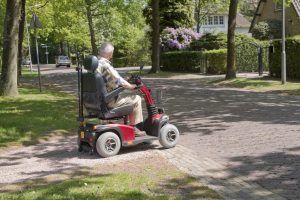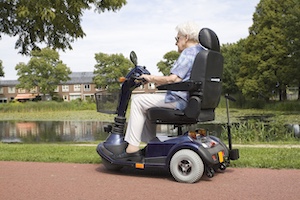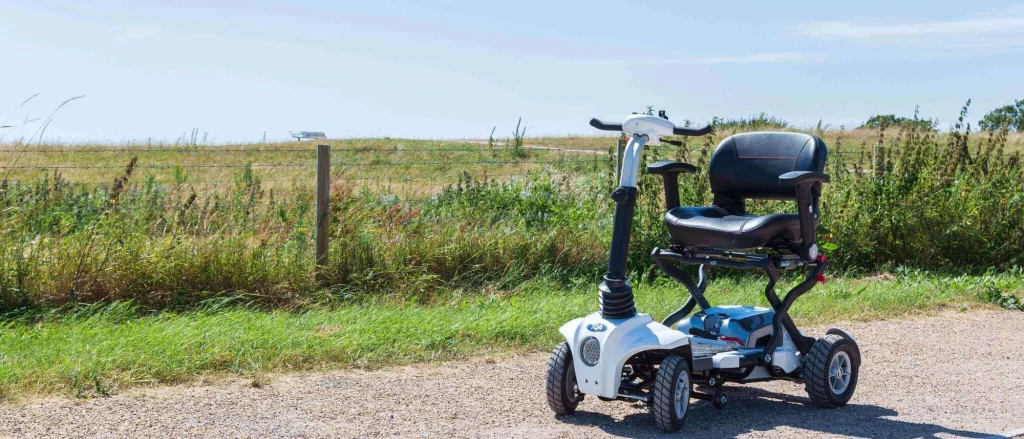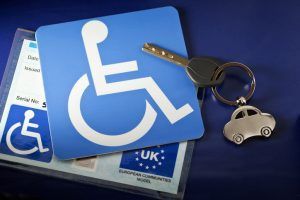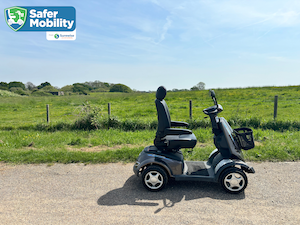A terminally ill mum is calling on road users to be more considerate of mobility scooters, highlighting the growing daily difficulties she faces while trying to get around.
Dawn West, who has stage 4 breast cancer, describes her mobility scooter as her “lifeline,” relying on it to attend medical appointments, shop and meet friends.
However, each time she leaves her home, she faces cars parked on pavements, overgrown foliage and other hazards that block her path. These obstacles often force her to reverse and find alternative routes, adding significant time and stress to her journeys.
Dawn, 51, from Burbage, Leicestershire, said: “I’m speaking out to raise awareness of the challenges that mobility scooter users like myself face every day. People need to understand that parking on pavements, blocking dropped kerbs or allowing hedges to overgrow may seem trivial to them, but it makes life so much harder for us.”
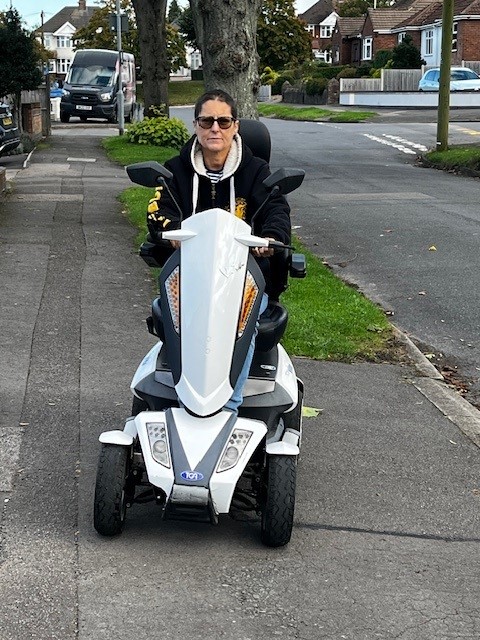
Dawn is joining forces with Warwickshire Road Safety Partnership and leading mobility scooter insurer, Surewise, as part of the Safer Mobility campaign, which was launched earlier this year.
The married mother-of-two continued: “There’s a stigma surrounding mobility scooter use. But the reality is, by law you must have an injury, a physical disability or a medical condition to use one. Drivers need to recognise how vulnerable we are.”
Dawn expressed concern over neglected pavements, noting that uneven surfaces, holes and tree roots render them unsafe for mobility scooters, often forcing users into the road.
She added: “Every road crossing needs drop kerbs on both sides. Often, only one side has a drop kerb, which means I have to venture into the road to find a safe place to get back on the pavement. Even though my scooter is road-legal, I don’t feel safe using it on the roads.”
While her class three mobility scooter is legally permitted on the roads, she is acutely aware of the risks. Data released by Surewise earlier this year, shows that mobility scooter casualties in the UK have risen by an average of 20 per cent each year over the past decade, making road use a hazardous option.
Worryingly, their research also found that mobility scooter riders are two and a half times more likely to be killed in a road collision than other road users.
“If mobility scooter users were granted the same protection as cyclists and horse riders in the Highway Code – ‘pass wide and slow’ – we might feel safer using the roads,” she added.
“Cars passing too closely are dangerous; wing mirrors are at head height, and the turbulence from larger vehicles is terrifying. We need the same recognition and protection.”
Warwickshire Police and Crime Commissioner Philip Seccombe, who chairs the Road Safety Partnership, said: “Dawn’s experience highlights a problem that growing numbers of people are experiencing when they use mobility scooters. Just as with cyclists, motorists need to take care when passing mobility scooters on the roads, leaving plenty of distance and being mindful of their speed.
“There are also other simple things they can do like parking considerately and not blocking dropped kerbs that can make a big difference to ensuring mobility scooter users can move about freely and without worry.
“Warwickshire Road Safety Partnership has a strategy to halve deaths and serious injuries on our roads by 2030, with a particular focus on protecting our most vulnerable road users. That can only be achieved if we all play our part, so I share the ambitions of the Safer Mobility campaign.”
Earlier this year, Nottingham Trent University, led by Dr. Duncan Guest, published the findings of the largest-ever study into mobility scooter use. Surveying over 250 mobility scooter users, the study highlighted regular struggles with hazards such as parked cars, narrow pavements and poor road design.
These findings reinforce Dawn’s experiences and emphasise the urgent need for better infrastructure, hazard perception training and greater public awareness to improve the safety and quality of life for mobility scooter users.
Richard Hannan, Director at Surewise, said: “Sadly, Dawn’s experience is not unique – many of our customers have reported similar concerns about blocked pavements, dangerous road conditions and a lack of safe crossings.
“These obstacles make it challenging for mobility scooter users to lead independent lives, and the constant need to navigate hazards can become overwhelming, preventing people from leaving their homes altogether. “Such barriers can easily discourage individuals from going out, increasing the risk of social isolation and mental health issues.”



